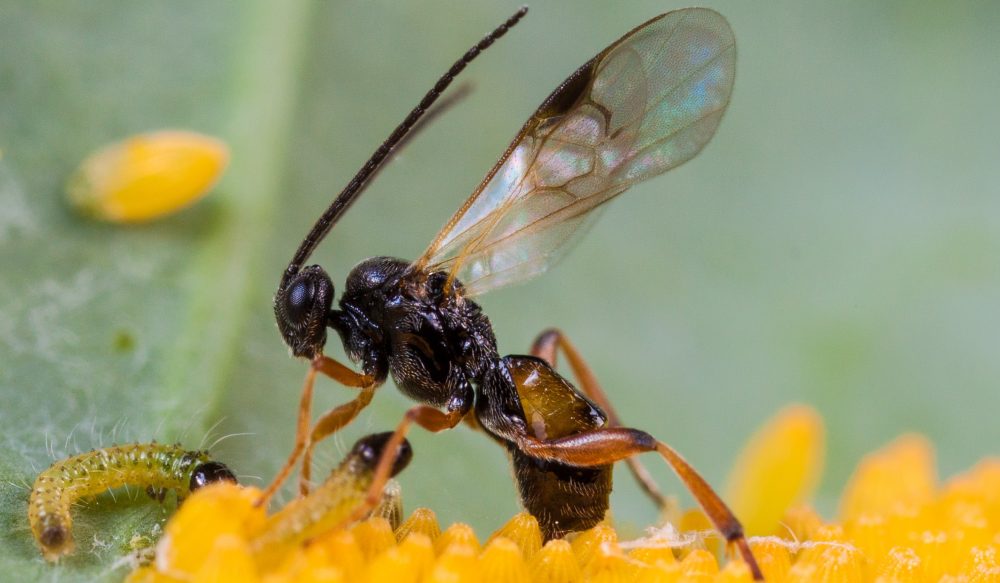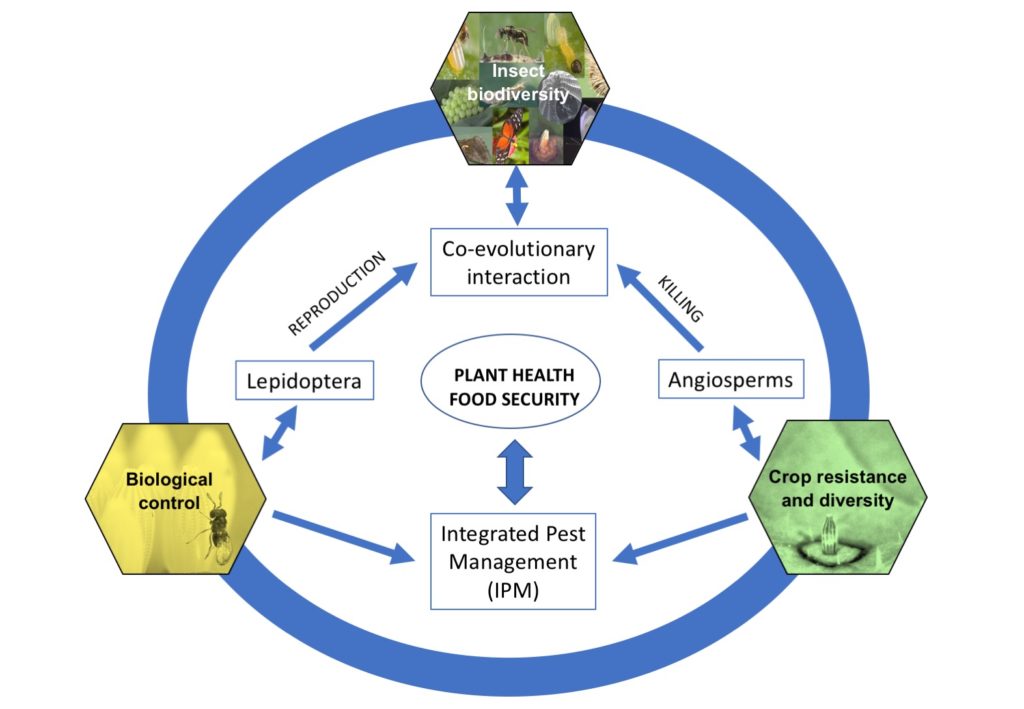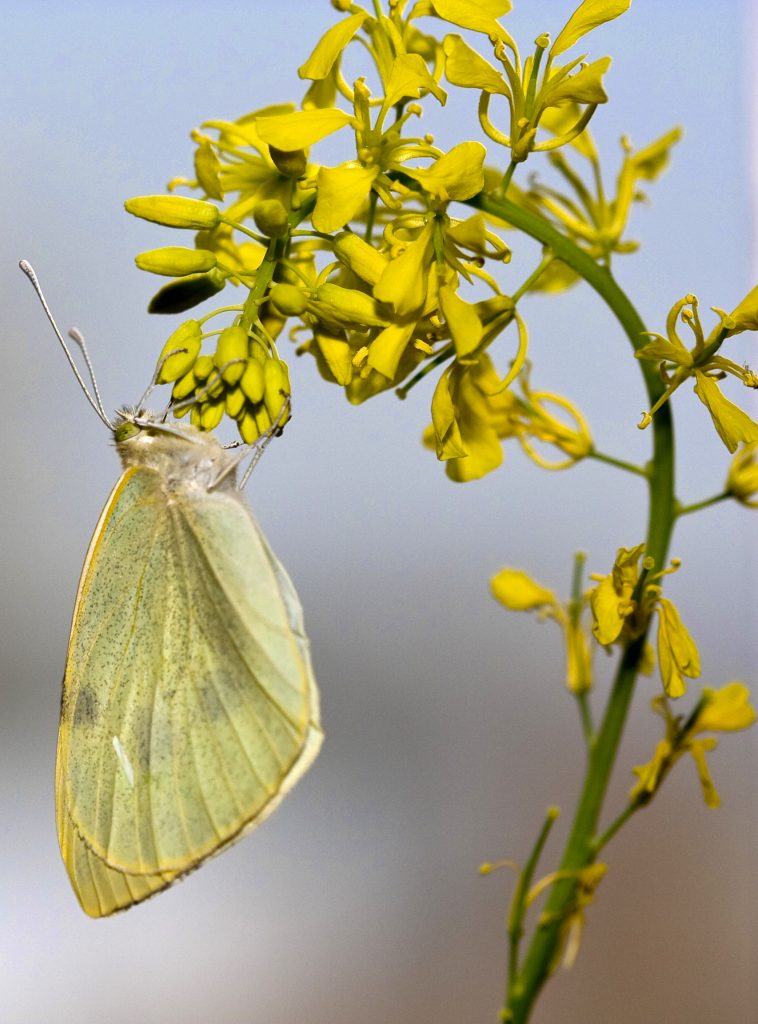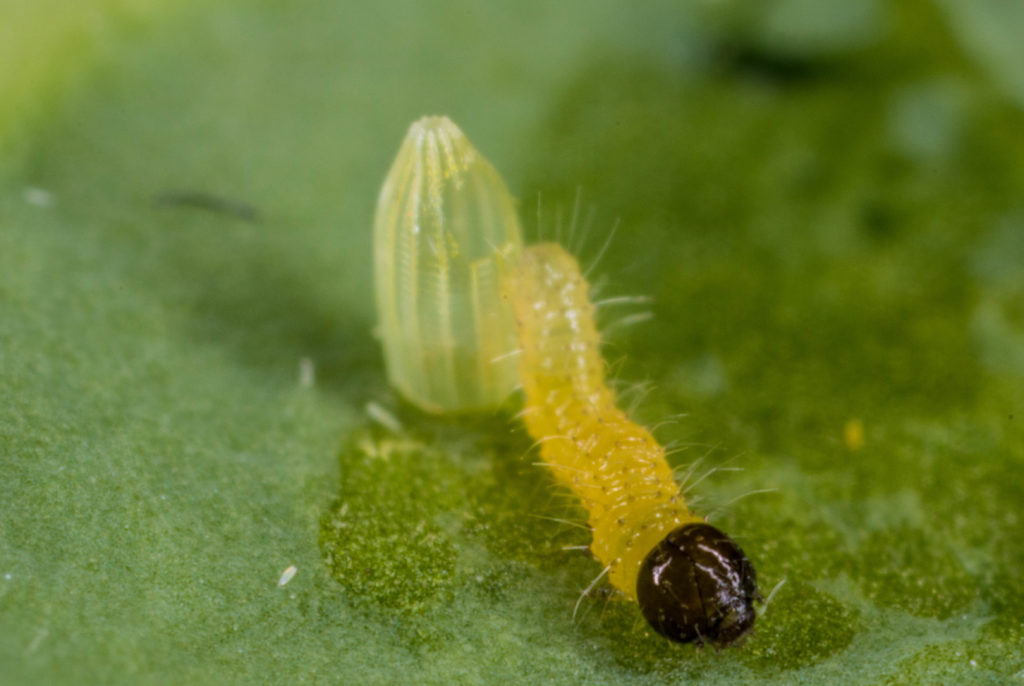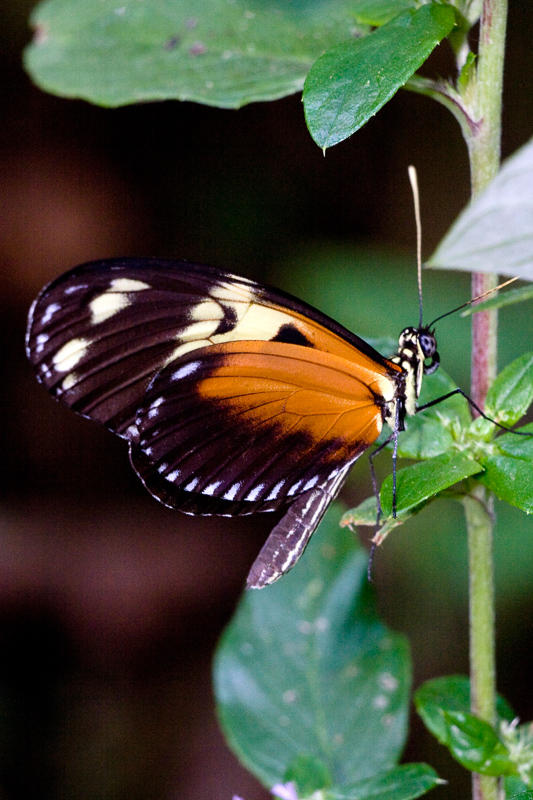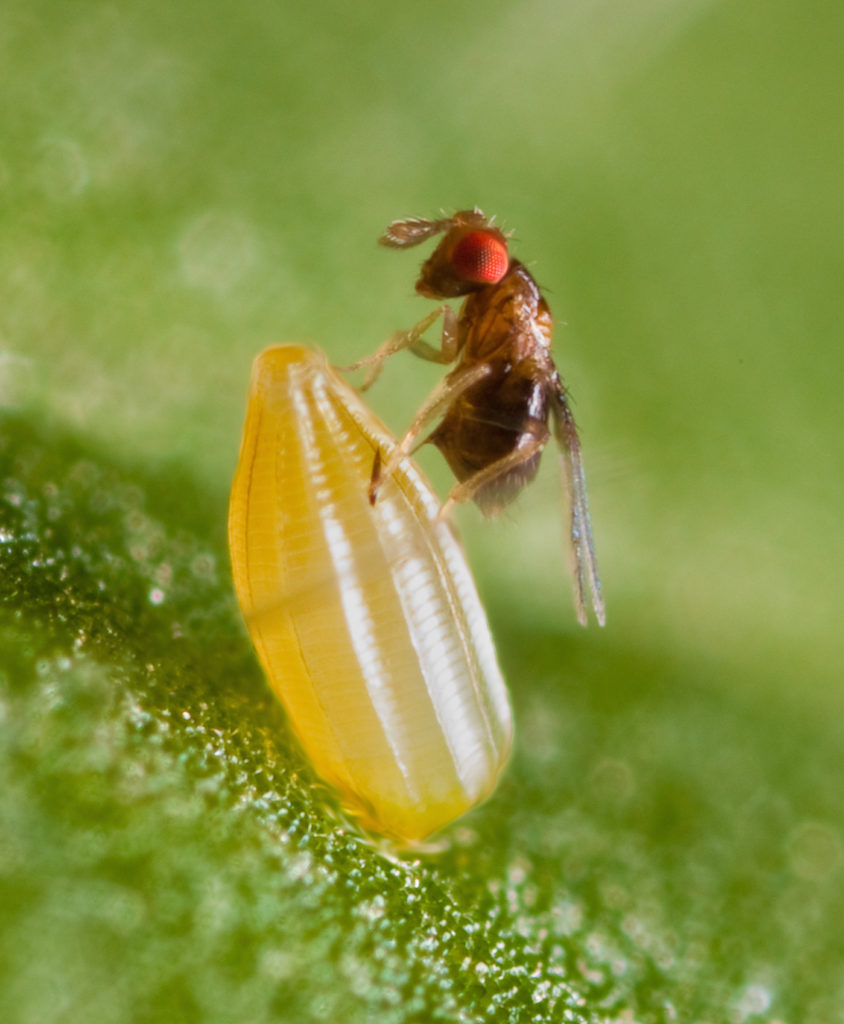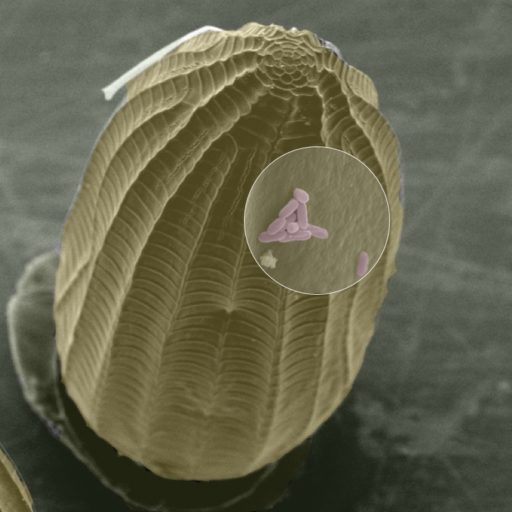Main research lines
With my research at the Biosystematics group I focus on (lepidopteran) herbivores and coevolutionary relationships with other organisms that are seen as major driving forces to their enormous success and diversity, namely interactions with their angiosperm hosts, beneficial microorganisms, and parasitoid wasps. My expertise is to understand species interactions during an often-neglected reproductive phase, the insect egg stage. My research can be divided into four main objectives: 1) What is the genetic and molecular basis of these traits (both direct egg-killing by necrosis/neoplasm and indirect egg-killing by attraction of parasitoid wasps) (Microevolution)? 2) What is the evolutionary origin of egg-killing in the economically important Brassicales plant order and do pierid butterflies counteract egg-killing (Macroevolution) ? 3) What is the role of symbionts and/or their genes/ products in plant responses to eggs and counteradaptations by herbivores? 4) Do egg parasitoid wasps severely constrain the evolution of the use of (anti-) sex pheromones in Lepidoptera? To test these objectives, I use state-of-the-art techniques in comparative genomics and transcriptomics/ metabolomics and combine them with phylogenetic analysis and greenhouse/ field studies. With my research, I want to contribute to solutions to prevent further insect declines by understanding the evolution of species interactions that drive insect biodiversity. I aim to find approaches for agriculture that are integrated into a combination of pest management strategies, by focusing on biological control and crop resistances and diversity. These alternatives for pesticides are part of a sustainable agriculture aimed by the EU and circular agrofood system aimed by the Dutch government. This will eventually help to preserve and even increase insect diversity (see overview).
Current projects
Caterpillars of lepidopteran insect pests cause serious problems in agriculture and forestry, and finding alternatives to chemical pesticides is important to reduce their threats to agricultural production. I am interested in the evolutionary and genetic basis of pest egg-killing in plants. We combine evolutionary and molecular biology, (meta)genomics, transcriptional analysis, chemical analysis of plant and insect metabolites, and experimental ecological studies to gain novel insights on how plants make use of this highly effective 'first line of defence' - killing of insect eggs. The former NWO/ Vidi project was supported by several crop breeding and seed companies. Since 2020, we restarted the work on butterfly anti-sex pheromones and their constrain by hitch-hiking egg parasitoids. One PhD student dives into the evolutionary questions, supported by ecological field and lab work, genetics and chemical analysis. Besides these these two projects that contain both fundamental and applied questions, the work on insect diversity of green roofs, biocontrol of the olive fruitfly and prevelance of Trichogramma wasps in cabbage crop fields is clearly linked to societal relevant questions on urban ecology and biocontrol.
-
Recent Posts
- Dr. Bassetti, congrats – you made it! October 7, 2022
- New publication by Corne van der Linden in Biological Control March 31, 2022
- First thesis chapter published by Niccolo Bassetti in BMC Plant Biology! March 31, 2022
- Yes, finally, Eddie Griese obtained his PhD degree! October 6, 2021
